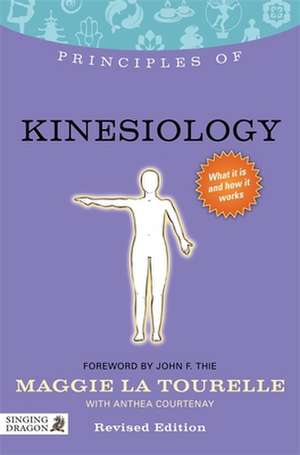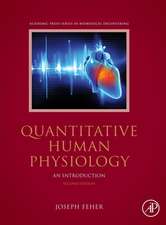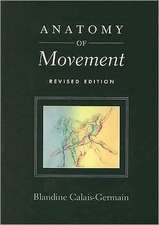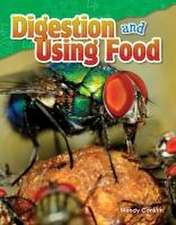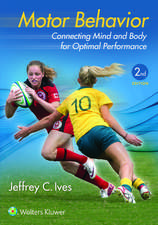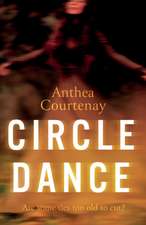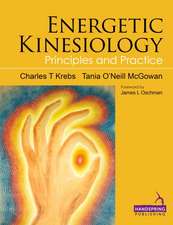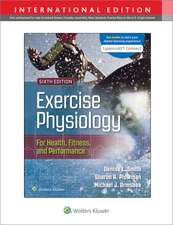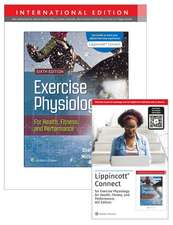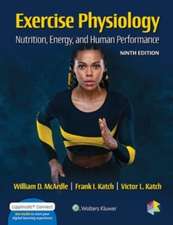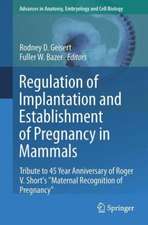Principles of Kinesiology: What It Is, How It Works, and What It Can Do for You: Discovering Holistic Health
Autor Maggie LaTourelle, Anthea Courtenayen Limba Engleză Paperback – 27 feb 2013
Preț: 107.08 lei
Preț vechi: 112.72 lei
-5% Nou
Puncte Express: 161
Preț estimativ în valută:
20.49€ • 22.25$ • 17.21£
20.49€ • 22.25$ • 17.21£
Carte disponibilă
Livrare economică 01-15 aprilie
Preluare comenzi: 021 569.72.76
Specificații
ISBN-13: 9781848191495
ISBN-10: 1848191499
Pagini: 200
Dimensiuni: 185 x 195 x 12 mm
Greutate: 0.23 kg
Ediția:Revised
Editura: Singing Dragon
Seriile Discovering Holistic Health, Principles Of--
ISBN-10: 1848191499
Pagini: 200
Dimensiuni: 185 x 195 x 12 mm
Greutate: 0.23 kg
Ediția:Revised
Editura: Singing Dragon
Seriile Discovering Holistic Health, Principles Of--
Notă biografică
Maggie La Tourelle has worked in the field of holistic healthcare for thirty years as a practitioner, teacher and writer integrating kinesiology, counselling, psychotherapy and NLP. She is an honorary member of The Kinesiology Federation, and a member of The Association for Therapeutic Healers, The British Association for Counselling and Psychotherapy, The Scientific and Medical Network and the Guild of Health Writers. She lives in London, UK. Anthea Courtenay is a freelance writer, journalist and translator, also based in London.
Cuprins
Acknowledgements. Foreword by John F. Thie, D.C. Introduction. Some Definitions. What is Kinesiology? Muscle Testing. Energy. Balance and Imbalance.; 1. The Development of Kinesiology. The Discovery of Kinesiology. The Triad of Health. Touch for Health (TFH) and Applied Kinesiology (AK).; 2. How Kinesiology Can Help. What Can Kinesiology Help? Is Kinesiology Safe? Kinesiology as Prevention.; 3. Visits to a Kinesiologist. Choosing a Kinesiologist. The First Session. Follow-up Sessions. Self-help.; 4. Kinesiology Assessment. Different Types of Assessment. What Can be Assessed? Summary Chart of What Can be Assessed. Assessment Methods. Summary Chart of Assessment Methods. How Assessment is Carried Out. Summary Chart of What is Assessed and How.; 5. Balancing: Corrections and Treatment. Types of Corrections and Treatments. Options for Balancing. Summary Chart of Corrections, Treatments and Balancing Options.; 6. Additional and Self-help Techniques. Goal-setting. Emotional Stress Release (ESR). Dehydration and Water. Stimulating the Immune System. Improving Vision, Hearing and Co-ordination. Summary Chart of Self-help Techniques. Additional Techniques (Non-self-help).; 7. Branches of Kinesiology. Professional Kinesiology Practitioner (PKP). Applied Physiology (AP) Health Kinesiology (HK). Educational Kinesiology (Edu-K). Wellbeing Kinesiology (WK). Clinical Kinesiology (CK). Hyperton-X (Hypertonic Muscle Release). Advanced Kinesiology. Conclusion. Summary Chart of AK, TFH and Branches of Kinesiology.; 8. Kinesiology and Other Fields. Kinesiology as an Adjunct to Holistic Medicine. Kinesiology and Manipulative Therapies. Kinesiology as an Aid to Nutritional and Herbal Remedies. Kinesiology and Counselling, Psychotherapy and Lifestyle. Energy Medicine. The Future. Conclusion.; Appendix A: Touch for Health - Summary of Workshop Content.; Appendix B: Principle International Kinesiology Organizations. Bibliography and Further Reading. Index.
